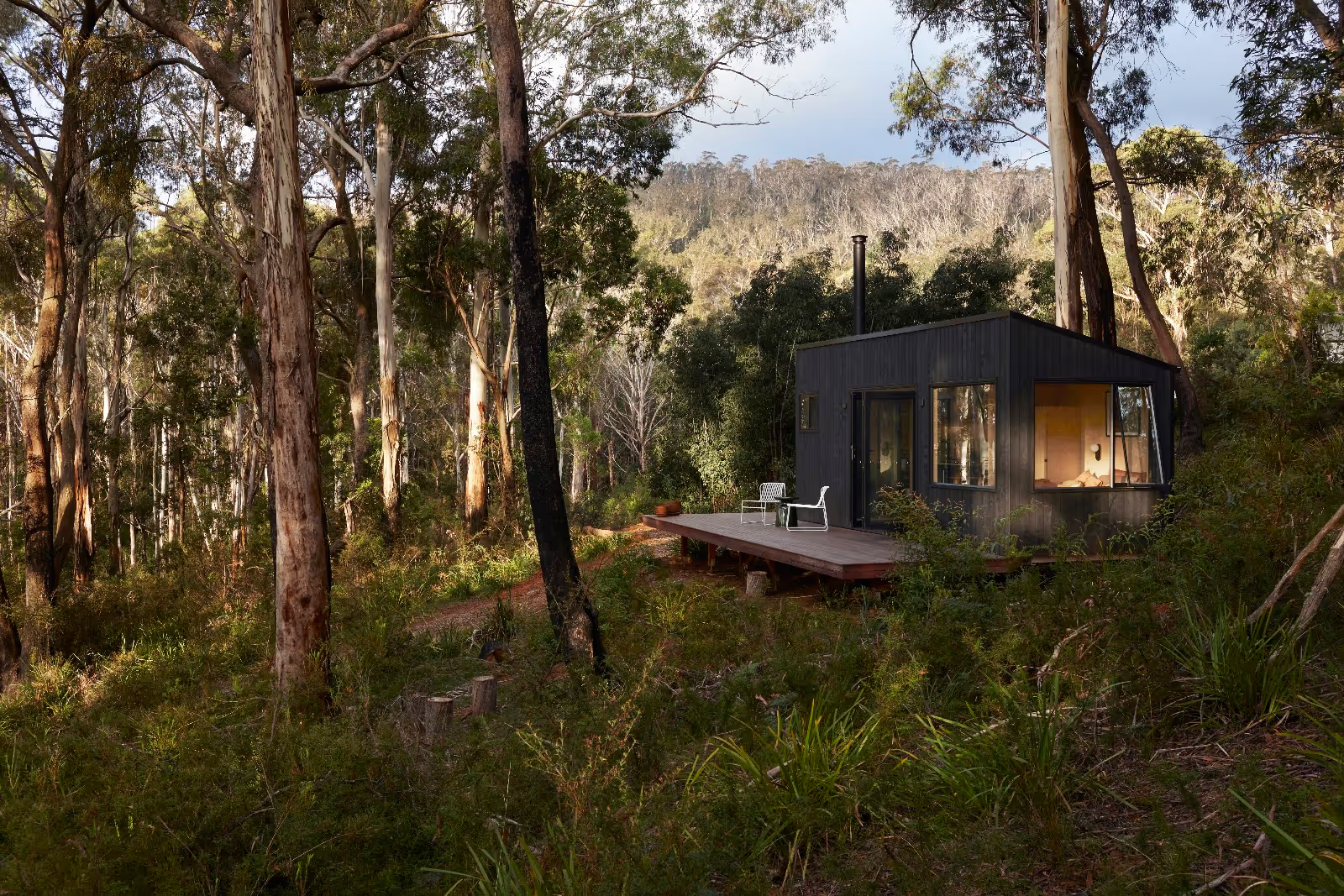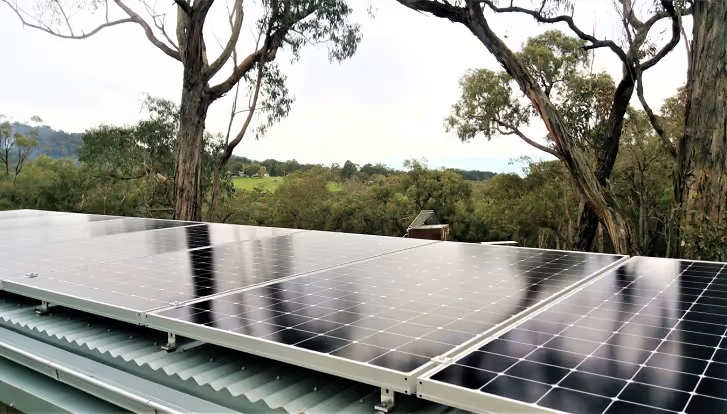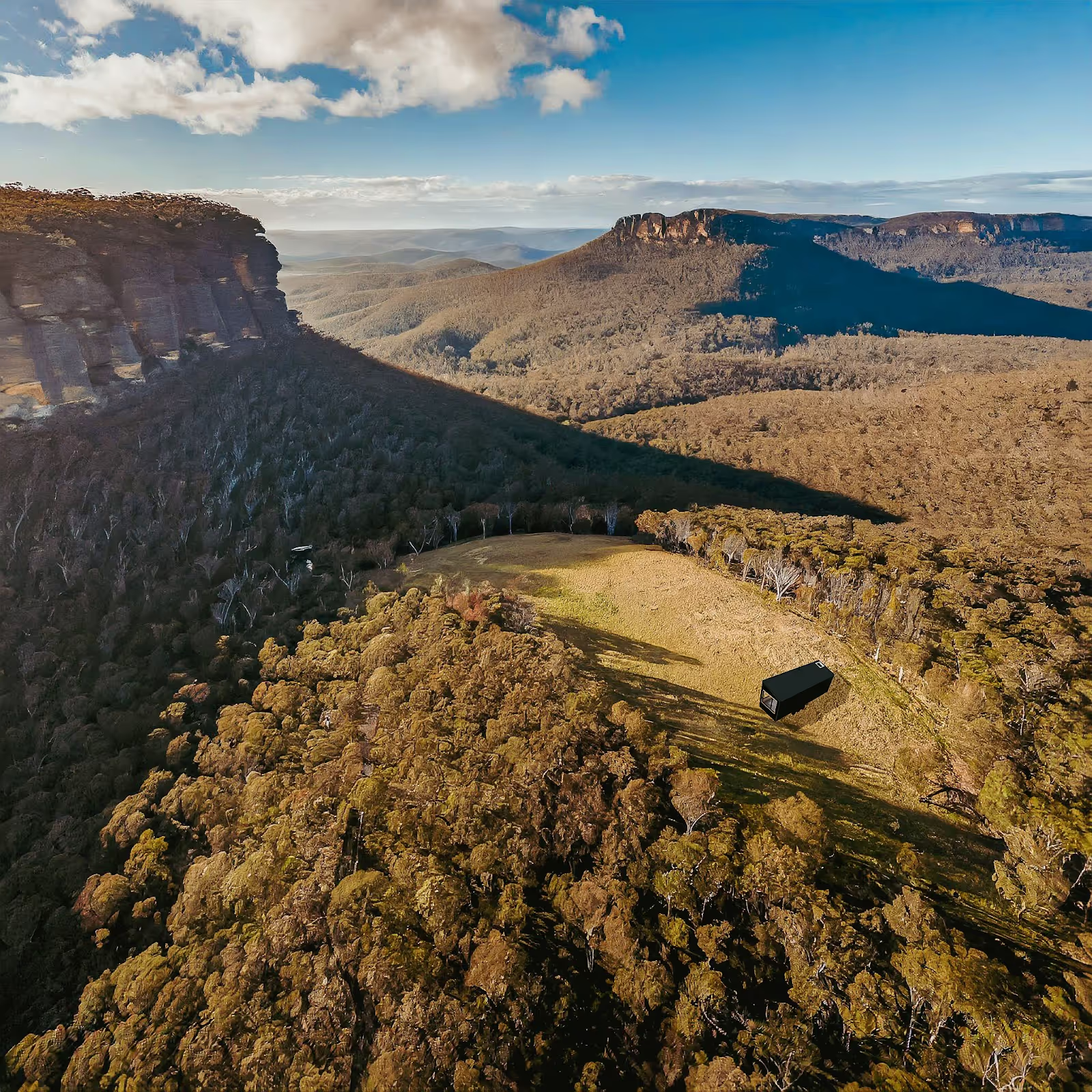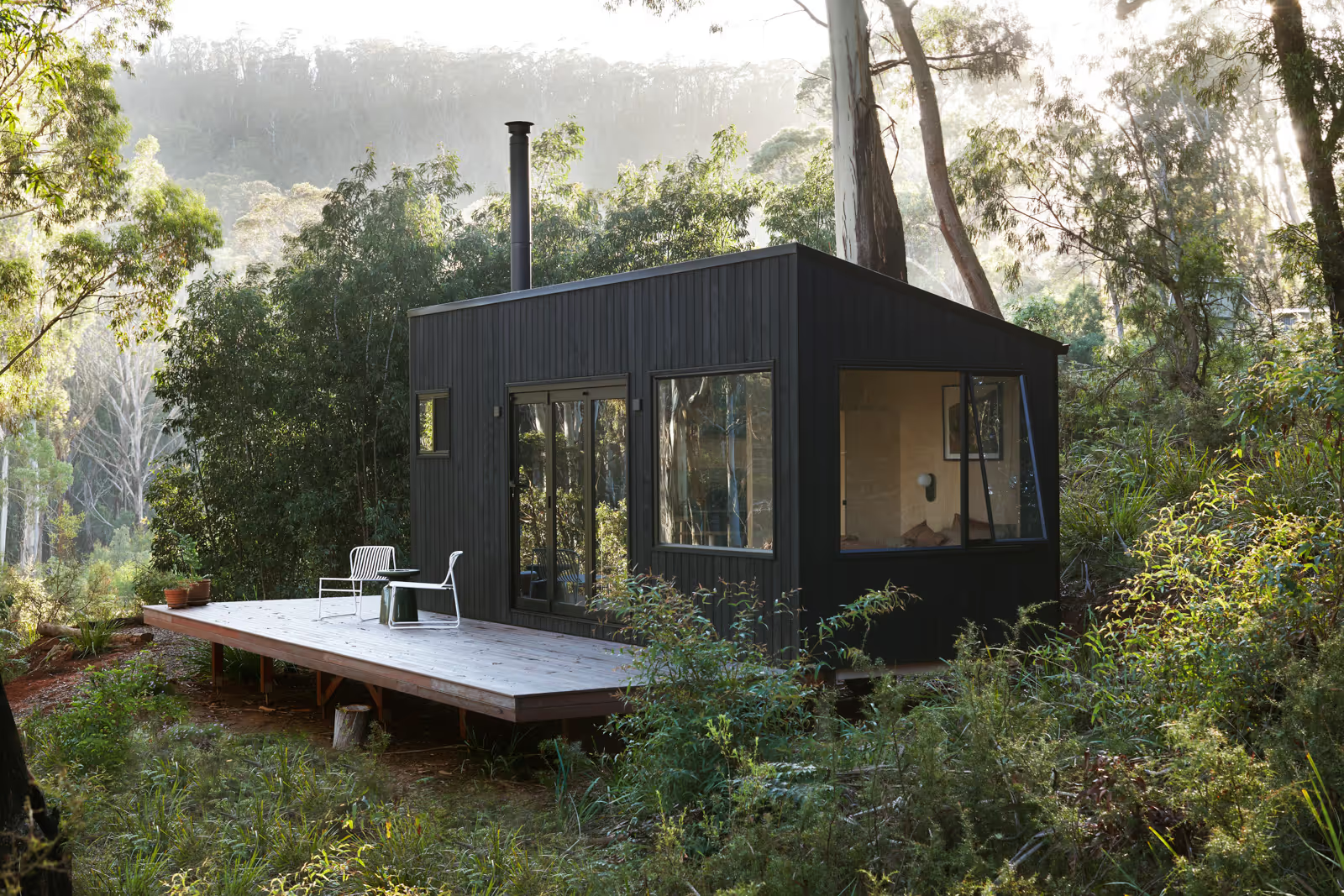Off-Grid Tiny Homes: Self-Sufficient & Sustainable Living

True Independence: The Freedom of Off-Grid Systems
Off-grid tiny homes represent the ultimate expression of sustainable, independent living. Free from external utility connections, these self-contained dwellings provide freedom to live almost anywhere while dramatically reducing your environmental footprint. At Tall Tiny, we design and build integrated off-grid systems that deliver reliable performance without sacrificing modern comforts.
Our approach combines proven technologies with thoughtful design, creating homes that function efficiently in all conditions—from remote coastal headlands to alpine bushland. This isn't just about disconnecting from utilities; it's about creating a more resilient, sustainable way of living.
Complete Solar Power Solutions: Energy Independence
The foundation of off-grid living begins with reliable, renewable energy. Our solar solutions are engineered specifically for tiny home applications, with system designs that maximize generation while fitting within the constraints of mobile structures.
Solar Generation Systems
- High-efficiency panels: Premium monocrystalline panels selected for maximum generation in limited space
- Mounting options: Custom mounting systems designed for your specific roof configuration
- Microinverter technology: Individual panel optimization improving performance and reliability
- Expandable design: Systems scalable based on your evolving needs
- Wind resistance engineering: Secure mounting designed for transport and high-wind conditions
Battery Storage Solutions
- Lithium technology: Modern LiFePO4 batteries offering superior cycle life and safety
- Properly sized systems: Right-sized storage tailored to your actual usage patterns
- Thermal management: Temperature-controlled battery environments for optimal performance
- Advanced monitoring: Real-time battery health and capacity tracking
- Modular expandability: Capacity increases possible without complete system replacement
System Integration
- Smart inverter technology: Pure sine wave output compatible with sensitive electronics
- Automatic generator backup: Optional integration with backup power sources
- Load management: Smart controls prioritizing essential systems
- Grid connection provision: Optional capability to connect to grid when available
- Weatherproof components: All external equipment rated for extreme conditions

Water Collection and Management: The Lifeblood of Independence
Self-sufficient water systems are essential for true off-grid living. Our integrated water solutions provide clean, reliable supply while minimizing consumption.
Rainwater Harvesting
- High-capacity collection: Roof designs optimized for maximum capture
- First-flush diversion: Automatic systems diverting initial contaminants
- Filtration systems: Multi-stage purification ensuring potable water quality
- Compact storage: Space-efficient tanks integrated into the tiny house design
- Monitoring systems: Real-time water level tracking and usage metrics
Water Conservation Solutions
- Low-flow fixtures: Premium fixtures delivering satisfaction with minimal water use
- Pressure management: Optimized systems maintaining comfortable flow rates
- Grey water recycling: Optional systems for garden irrigation or toilet flushing
- Efficient appliances: Washing machines and dishwashers selected for minimal consumption
- Smart monitoring: Usage tracking helping identify conservation opportunities
Filtration and Treatment
- Multi-stage filtration: Sediment, carbon, and ultrafiltration systems
- UV sterilization: Chemical-free disinfection technologies
- Mineralization options: Remineralization for improved taste and health benefits
- Compact design: Space-efficient systems fitting within tiny house constraints
- Maintenance accessibility: Easy-access components simplifying regular upkee
Waste Management Solutions: Closing the Loop
Responsible waste handling is critical for environmental protection and regulatory compliance. Our waste management approaches turn a potential problem into a sustainable resource.
Composting Toilet Systems
- Odor-free operation: Properly designed ventilation eliminating smells
- Low maintenance: Simple, reliable systems requiring minimal attention
- Compact designs: Space-efficient installations preserving valuable floor area
- Complete decomposition: Effective processing creating safe, usable compost
- Regulatory compliance: Systems meeting health department requirements
Grey Water Management
- Appropriate treatment: Matching treatment to your specific use case
- Soil compatibility: Systems designed for your property's specific soil type
- Regulatory navigation: Assistance with local approval requirements
- Space-efficient design: Compact systems minimizing land disturbance
- Winter performance: Cold-weather considerations for year-round function
Integrated Approaches
- System coordination: Holistic design connecting water, waste, and garden systems
- Permaculture principles: Turning waste streams into productive resources
- Educational support: Clear guidance on system operation and maintenance
- Compliance documentation: Assistance navigating regulatory requirements
Future-ready design: Adaptable systems anticipating evolving technologies
Cost Comparison: Off-Grid vs. On-Grid Options
Understanding the financial implications of off-grid systems helps make informed decisions about your investment.
Initial Investment Comparison by System Component:
Power system
- Off-Grid Investment: $15,000-30,000
- On-Grid Equivalent: $5,000-10,000 connection fee
Water system
- Off-Grid Investment: $8,000-15,000
- On-Grid Equivalent: $5,000-20,000 connection fee
Waste management
- Off-Grid Investment: $5,000-10,000
- On-Grid Equivalent: $5,000-25,000 connection fee
Total typical investment
- Off-Grid Investment: $28,000-55,000
- On-Grid Equivalent: $15,000-55,000
Long-Term Cost Considerations
- No utility bills: Elimination of monthly electricity, water, and sewage costs
- Maintenance expenses: Regular system upkeep averaging $500-1,000 annually
- Component replacement: Major component renewal every 10-15 years
- Increased property value: Enhanced resilience and self-sufficiency
- Location flexibility value: Ability to purchase less expensive remote land
Return on Investment Timeline
- High utility cost areas: 7-10 year payback period
- Remote locations: Immediate savings compared to utility extension costs
- Average scenarios: 10-15 year financial break-even point
- Carbon reduction value: Environmental benefits beyond direct financial return
- Resilience premium: Value of continued function during grid outages
Environmental Benefits: Beyond Personal Independence
Off-grid tiny homes deliver substantial environmental advantages beyond utility disconnection:
Reduced Resource Consumption
- Water efficiency: Off-grid homes typically use 50-80% less water than conventional homes
- Electricity conservation: Consumption reduced by 60-90% through efficient design and mindful usage
- Waste reduction: Composting and grey water systems keeping resources in productive cycles
- Material minimization: Smaller construction requiring fewer building resources
- Transportation savings: Reduced travel impacts from remote location work-from-home options
Carbon Footprint Reduction
- Renewable energy generation: Zero-emission power from solar and other renewable sources
- Eliminated transmission losses: No energy wasted in long-distance power delivery
- Reduced embodied energy: Smaller construction using fewer carbon-intensive materials
- Sustainable waste processing: Minimal methane generation compared to conventional sewage
- Local resource utilization: Rainwater harvesting reducing pumping and treatment impacts
Habitat Preservation
- Minimized land disturbance: Small footprint construction with limited site impact
- Reduced infrastructure expansion: No need for utility easements and access roads
- Lower development pressure: Making remote locations viable without infrastructure expansion
- Sustainable resource cycles: Closed-loop systems mimicking natural processes
- Heightened environmental awareness: Direct connection to resource generation and limits

Is Off-Grid Right for You?
While tremendously rewarding, off-grid living requires realistic expectations and preparation. You're an ideal candidate if:
- You value independence and resilience over unlimited resource access
- You're willing to adjust consumption patterns based on resource availability
- You appreciate the connection between your actions and environmental impact
- You enjoy understanding and participating in your home's systems
- You're prepared for the responsibility of system maintenance and monitoring
Tall Tiny's Off-Grid Expertise
Our team brings specific experience to off-grid system design and integration:
- Site-specific assessment: Customized recommendations based on your location's unique characteristics
- Comprehensive system design: Integrated approach to all off-grid components
- Quality component selection: Partnerships with premium equipment manufacturers
- Professional installation: Properly executed systems ensuring optimal performance
- Ongoing support: Assistance available throughout your off-grid journey
Begin Your Off-Grid Journey
The path to off-grid independence starts with thoughtful planning and expert guidance. We invite you to schedule a consultation to explore how our integrated approach to off-grid systems can create a self-sufficient tiny home that matches your vision of sustainable, independent living.
Our commitment extends beyond just building your home—we're partners in creating a lifestyle that offers true freedom, minimal environmental impact, and the satisfaction of self-reliance.
Book a Consultation to begin planning your off-grid tiny home journey.




